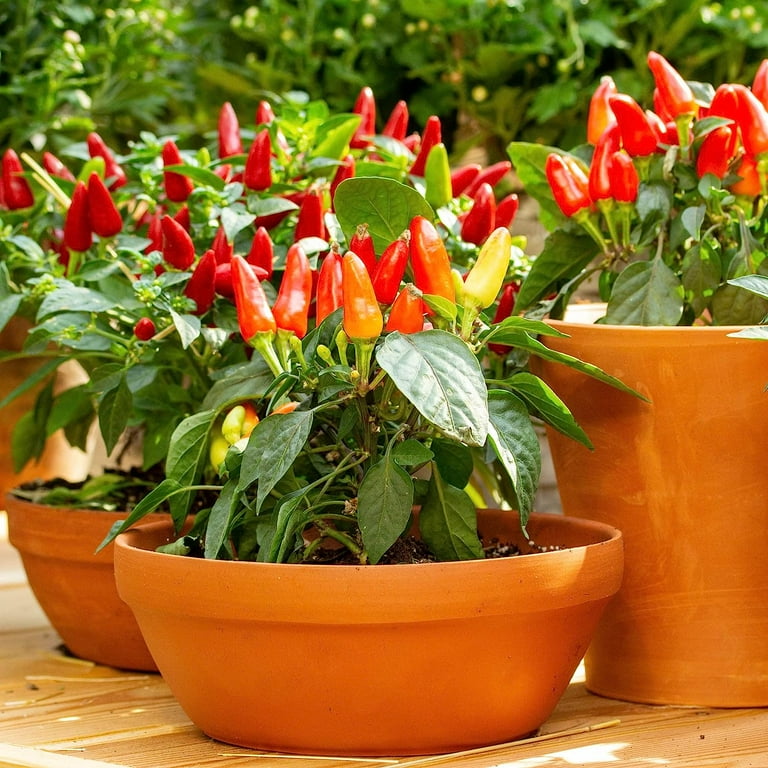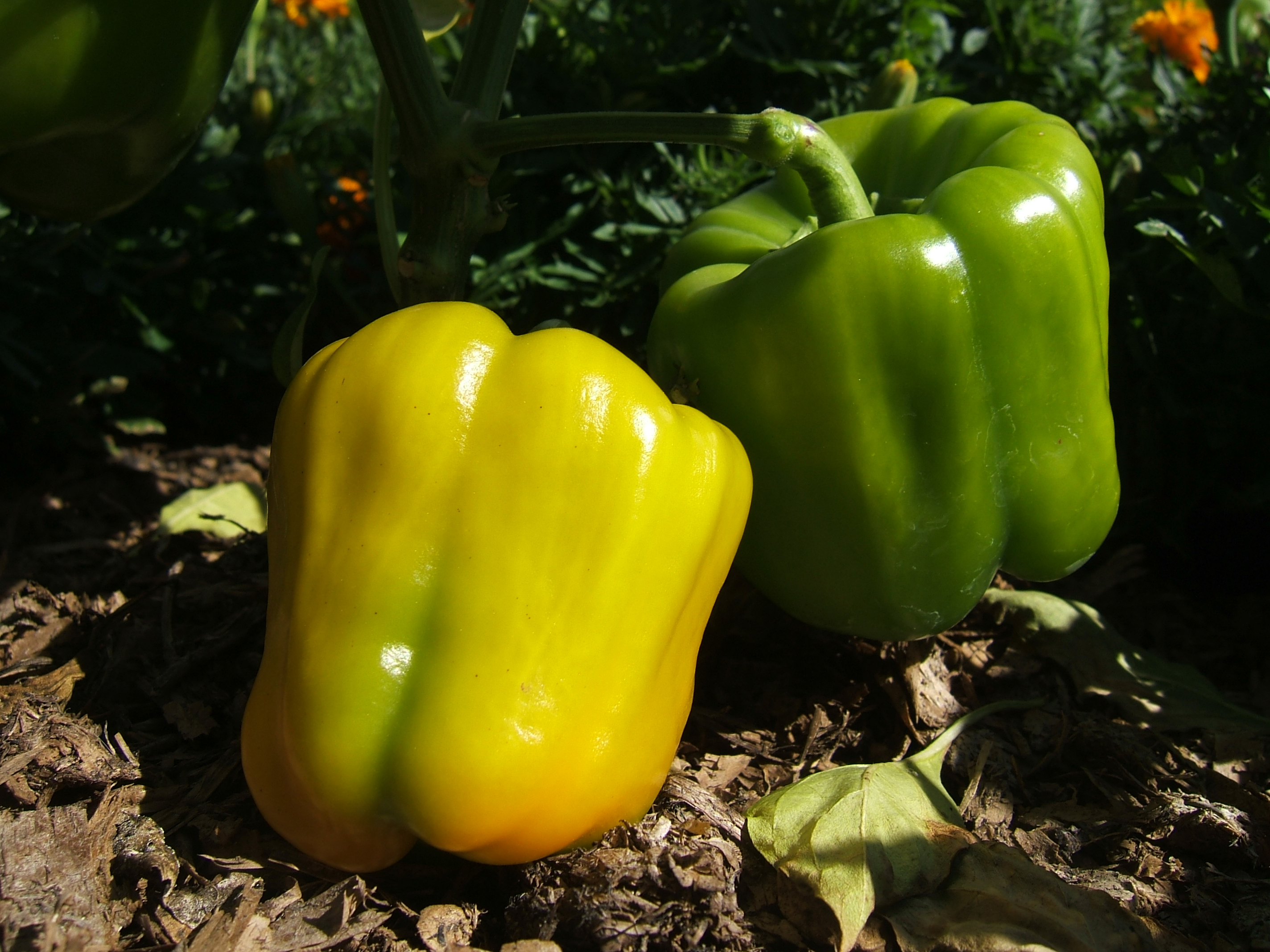Best Fertilizers for Peppers: Accomplish Superior Results in Your Yard
Best Fertilizers for Peppers: Accomplish Superior Results in Your Yard
Blog Article
Organic Vs. Synthetic Fertilizers: Which Is Best for Nurturing Healthy Pepper Plants?
In the world of nurturing healthy pepper plants, the option in between synthetic and natural plant foods stands as a crucial decision with far-ranging implications. While both alternatives goal to supply vital nutrients to sustain plant growth, the nuances of their effect on the dirt, plant health and wellness, and the atmosphere spark a debate that echoes throughout the gardening area. Comprehending the unique benefits and potential challenges of each fertilizer kind is critical for pepper growers looking for to maximize their returns while preserving an eco-conscious and lasting method.
Advantages of Organic Plant Foods
Organic fertilizers supply a sustainable and environmentally-friendly strategy to beneficial pepper plants, offering necessary nutrients without using artificial chemicals. These all-natural plant foods are derived from natural sources such as garden compost, manure, bone meal, and algae, promoting soil health and wellness and biodiversity. Unlike synthetic fertilizers, natural alternatives launch nutrients slowly, making sure a balanced and steady supply for pepper plants to flourish.
One significant benefit of organic fertilizers is their capacity to enhance dirt framework and water retention. By enhancing dirt wellness, organic fertilizers promote advantageous microbial task, which aids in nutrient uptake by pepper plants. Furthermore, organic plant foods lower the danger of chemical run-off, protecting water resources from air pollution and protecting the setting.
Moreover, natural plant foods contribute to long-lasting soil fertility by promoting the development of advantageous soil microorganisms. These microorganisms aid damage down raw material, launching nutrients in a form that is quickly accessible to pepper plants. best fertilizers for peppers. By promoting a healthy dirt community, natural plant foods sustain lasting pepper cultivation practices that profit both plants and the setting
Downsides of Synthetic Fertilizers
Artificial fertilizers, in comparison to their organic counterparts, position numerous disadvantages when made use of to nurture pepper plants, affecting both plant health and ecological sustainability. One significant disadvantage of artificial plant foods is their tendency to leach nutrients from the soil swiftly.
Moreover, the overuse of synthetic plant foods can add to water pollution. Excess plant foods not soaked up by plants can wash away right into water bodies, resulting in eutrophication, where algae blossoms diminish oxygen levels in the water, damaging aquatic life. Furthermore, synthetic fertilizers are normally stemmed from non-renewable sources, such as nonrenewable fuel sources, adding to carbon exhausts and environmental destruction throughout their manufacturing.
Nutrient Absorption Comparison
Reliable nutrient absorption plays a vital function in the general health and wellness and development of pepper plants. When comparing artificial and natural fertilizers in terms of nutrient absorption, organic plant foods have the benefit of giving a much more balanced and slow-release resource of nutrients (best fertilizers for peppers). Organic fertilizers have a selection of macro and micronutrients that are not just advantageous for the plants but additionally advertise healthy dirt microbial task, which helps in nutrient uptake. On the try here other hand, artificial fertilizers commonly offer a fast launch of nutrients, which can cause seeping and runoff, resulting in reduced nutrient absorption rates by the plants.
Furthermore, natural fertilizers boost soil framework and water retention ability, permitting pepper plants to accessibility nutrients more effectively. This better soil quality facilitates root advancement, making it possible for far better nutrient absorption. Synthetic fertilizers, although at first increasing plant development because of their high nutrient focus, may hinder lasting have a peek here nutrient absorption by degrading dirt wellness gradually.
Environmental Influence Factors To Consider

On the various other hand, synthetic fertilizers, although typically more promptly available and focused to plants, can have harmful results on the setting otherwise used effectively (best fertilizers for peppers). Their manufacturing requires high power inputs, leading to greenhouse gas discharges and adding to environment modification. In addition, the runoff of excess artificial plant foods can pollute water resources, resulting in eutrophication and damaging water ecosystems.
Finest Fertilizer Practices for Peppers
When fertilizing pepper plants, enhancing nutrient uptake and lessening ecological impact are essential considerations. To achieve this, it is necessary to adhere to finest fertilizer techniques customized to the certain demands of pepper plants. One crucial method is to perform a dirt test prior to using any plant foods. This examination can identify the pH degree of the soil and identify any type of nutrient deficiencies, you can try this out guiding you in choosing one of the most appropriate plant food formula.
One more important practice is to feed pepper plants at the correct time. Typically, peppers gain from receiving plant food at growing and after that once again when they start to blossom. Over-fertilizing can result in nutrition imbalances and damage the plants, so it is essential to adhere to recommended application rates.
Additionally, selecting a balanced fertilizer with an NPK ratio that matches pepper plants' demands is fundamental. Organic fertilizers, such as compost or manure, can be excellent choices as they launch nutrients slowly and improve soil framework with time. Artificial fertilizers can give a fast nutrient boost when needed. Ultimately, combining artificial and organic plant foods judiciously can help nurture healthy and balanced pepper plants while minimizing environmental impact.
Conclusion

Organic plant foods provide an environmentally-friendly and sustainable method to nourishing pepper plants, supplying essential nutrients without the use of synthetic chemicals. Unlike synthetic plant foods, organic choices release nutrients gradually, guaranteeing a well balanced and steady supply for pepper plants to grow.
Artificial fertilizers, in contrast to their natural counterparts, pose different negative aspects when used to nourish pepper plants, influencing both plant wellness and ecological sustainability. When comparing artificial and organic plant foods in terms of nutrient absorption, organic plant foods have the advantage of supplying a more balanced and slow-release source of nutrients.Furthermore, natural plant foods boost soil structure and water retention capability, enabling pepper plants to gain access to nutrients much more successfully.
Report this page